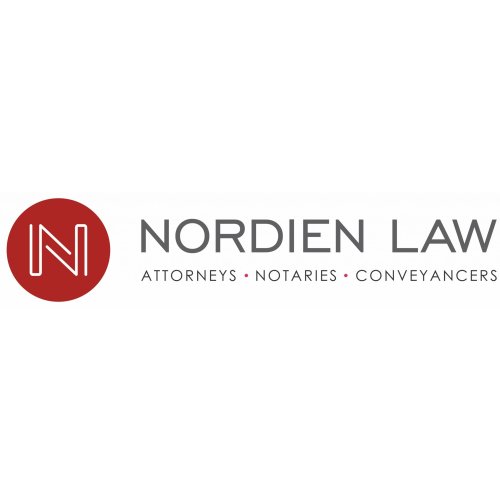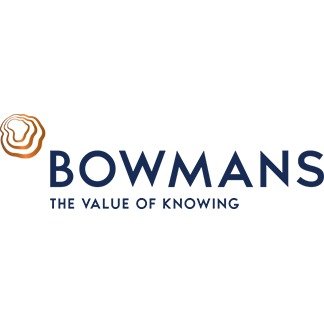Best Debt Capital Markets Lawyers in Cape Town
Share your needs with us, get contacted by law firms.
Free. Takes 2 min.
List of the best lawyers in Cape Town, South Africa
About Debt Capital Markets Law in Cape Town, South Africa
Debt Capital Markets (DCM) refer to the financial markets through which organizations raise debt financing rather than equity. In Cape Town, South Africa, DCM plays a vital role in connecting issuers, such as corporations, financial institutions, and public entities, with investors who wish to buy debt securities like bonds, notes, and commercial papers. The DCM environment in Cape Town is influenced by both local and international legal frameworks, overseen by financial regulators, and driven by the need for structured, compliant, and efficient debt financing solutions.
Why You May Need a Lawyer
Navigating Debt Capital Markets can be complex due to the strict legal, regulatory, and procedural requirements involved. Here are common situations where seeking legal advice is essential:
- Structuring and issuing debt securities such as bonds or notes
- Understanding the regulatory requirements for listing on the Johannesburg Stock Exchange (JSE) from Cape Town
- Drafting and reviewing offering documents and prospectuses
- Negotiating terms with lenders, investors, or underwriters
- Ensuring compliance with local and international securities regulations
- Managing cross-border debt offerings involving South African and foreign markets
- Advising on tax considerations and risk mitigation strategies
- Resolving disputes related to debt instruments or defaults
- Advising state-owned enterprises or municipalities issuing public debt
- Assisting with ongoing reporting and disclosure obligations after a debt issue
In any of these situations, a lawyer can help protect your interests, ensure legal compliance, and facilitate a smoother process.
Local Laws Overview
Cape Town’s Debt Capital Markets operations are governed by a combination of national statutes, regulatory bodies, and exchange rules. The most relevant laws and regulations include:
- The Companies Act, 2008 - Governs corporate governance, disclosure obligations, and company conduct in issuing debt
- The Financial Markets Act, 2012 - Overseen by the Financial Sector Conduct Authority (FSCA), this act regulates trading, disclosure, and conduct in financial markets
- Exchange Control Regulations - Enforced by the South African Reserve Bank for cross-border fund flows
- Regulations of the Johannesburg Stock Exchange (JSE) - Applies to public offerings and listings of debt securities
- National Treasury Guidelines - Especially relevant for government and parastatal issuers
- Tax statutes - Address withholding tax, interest exemptions, and deductibility relevant to debt instruments
Due diligence, proper documentation, investor disclosure, and strict compliance with these laws are vital for a successful debt issuance in Cape Town.
Frequently Asked Questions
What are Debt Capital Markets?
Debt Capital Markets are segments of the financial market where entities raise investment capital by issuing debt instruments like bonds or notes to investors. The issuer repays the principal with interest over an agreed timeframe.
Who regulates Debt Capital Markets in Cape Town?
Debt Capital Markets in Cape Town are regulated mainly by the Financial Sector Conduct Authority (FSCA) and, for listed securities, by the Johannesburg Stock Exchange (JSE).
Can foreign investors participate in South African Debt Capital Markets?
Yes, foreign investors can buy South African debt instruments, subject to exchange control regulations and certain tax implications.
What documents are required to issue debt securities in Cape Town?
Core documents include a prospectus or offering memorandum, legal opinions, board resolutions, contract agreements, and, if applicable, JSE listing documents.
What is a prospectus, and is it always required?
A prospectus is a detailed disclosure document for potential investors. It is generally required for public offers but might not be needed for private placements, depending on the transaction structure and investor profile.
What are the main risks of issuing or investing in debt securities?
The main risks include credit risk (issuer default), interest rate risk, currency risk (for cross-border issues), and liquidity risk. Legal and regulatory non-compliance adds significant operational risk.
How are debt securities listed in South Africa?
Debt securities can be listed on the JSE’s Interest Rate Market. The process involves meeting prescribed listing requirements, filing applications, and subjecting documents to regulatory scrutiny.
Are there tax implications for interest paid on debt securities?
Yes, interest paid may be subject to withholding tax, unless exemptions apply. Both issuers and investors should seek tailored tax advice to ensure compliance and optimize tax efficiency.
What happens if an issuer defaults on a debt instrument?
If an issuer defaults, remedies depend on the terms of the debt instrument and applicable law. Investors might pursue claims for payment, initiate insolvency proceedings, or enforce security rights.
Why is legal advice critical in Debt Capital Markets?
Legal advice helps ensure regulatory compliance, proper contract drafting, risk identification, and effective dispute resolution. Mistakes can result in severe financial and reputational consequences.
Additional Resources
If you are seeking more information or legal support regarding Debt Capital Markets in Cape Town, the following resources can assist:
- Financial Sector Conduct Authority (FSCA) - Regulates market behavior
- Johannesburg Stock Exchange (JSE) - Debt Listings Requirements
- South African Reserve Bank - Exchange control guidance
- National Treasury - Policy guidelines and public issuances
- Law Society of South Africa - Directory of qualified legal practitioners
- South African Institute of Chartered Accountants (SAICA) - For financial structuring advice
Next Steps
If you need legal assistance in Debt Capital Markets in Cape Town, South Africa, consider these steps:
- Assess your needs - Are you raising capital, investing, or seeking to resolve a dispute?
- Prepare relevant documents and details about your case or transaction
- Contact a qualified lawyer or law firm with expertise in Debt Capital Markets
- Consult with your financial advisor or accountant for added perspective
- Engage your chosen legal professional to review your objectives, advise on risks, and manage regulatory processes
- Maintain clear communication throughout the transaction or dispute resolution process
Reaching out to an experienced lawyer early can save money, prevent delays, and ensure your interests are protected at every stage in the Debt Capital Markets process.
Lawzana helps you find the best lawyers and law firms in Cape Town through a curated and pre-screened list of qualified legal professionals. Our platform offers rankings and detailed profiles of attorneys and law firms, allowing you to compare based on practice areas, including Debt Capital Markets, experience, and client feedback.
Each profile includes a description of the firm's areas of practice, client reviews, team members and partners, year of establishment, spoken languages, office locations, contact information, social media presence, and any published articles or resources. Most firms on our platform speak English and are experienced in both local and international legal matters.
Get a quote from top-rated law firms in Cape Town, South Africa — quickly, securely, and without unnecessary hassle.
Disclaimer:
The information provided on this page is for general informational purposes only and does not constitute legal advice. While we strive to ensure the accuracy and relevance of the content, legal information may change over time, and interpretations of the law can vary. You should always consult with a qualified legal professional for advice specific to your situation.
We disclaim all liability for actions taken or not taken based on the content of this page. If you believe any information is incorrect or outdated, please contact us, and we will review and update it where appropriate.















